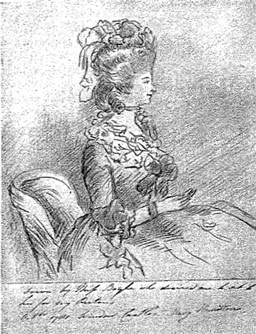Unlocking the Mary Hamilton Papers
Hannah Barker (Principal Investigator, The University of Manchester), David Denison (Co-Investigator, The University of Manchester), Nuria Yáñez-Bouza (Co-Investigator, University of Vigo and University of Manchester), Sophie Coulombeau (Co-Investigator, University of York), Tino Oudesluijs, Cassandra Ulph, Christine Wallis (Research Associates, The University of Manchester)

This ambitious project, funded by the Arts and Humanities Research Council, exploits an almost untouched archive to answer important questions about reading, letter-writing and everyday language in Georgian England and the contribution made by social networks to these significant cultural practices.
A multidisciplinary team from the fields of linguistic, historical and literary studies are addressing questions and combining approaches to contribute to current academic debates across a broad range of research areas in innovative ways. The project sheds new light on the culture of English society in this period and launched an exciting new genre of Hamilton studies by exploring a remarkable, but relatively unknown archive, previously scattered over eleven libraries in Britain and the USA.
The project explores four related research questions on reading, letter-writing, language practices and the role of social networks in Georgian England, reunites the Mary Hamilton papers in a complete, Open-Access scholarly edition and analyses Hamilton’s social networks. The project builds on the earlier work of the Image-To-Text Project, which began the important work of transliterating the Mary Hamilton Papers held in the John Rylands Library.
Teaching and learning materials
We have produced a set of resources for A-level English teachers. They focus on an extraordinary sequence of letters written between Mary Hamilton - then a governess to the daughters of George III and Queen Charlotte - and the young Prince of Wales, the future George IV.
Using the supporting resources, these letters can be studied as a powerful narrative with modern-day #MeToo echoes, as contextualising support for Jane Austen and Charlotte Brontë's novels, or as examples of eighteenth-century English.
To access the free resources, please register below (you will only be asked to provide your name, school and email address). You will then be directed to a download page.
Current projects
Our research work is improving our understanding of people, cultures and societies around the world.
Read more
Past projects
An overview of completed projects from the John Rylands Research Institute and Library dating from 2017.
Read more

